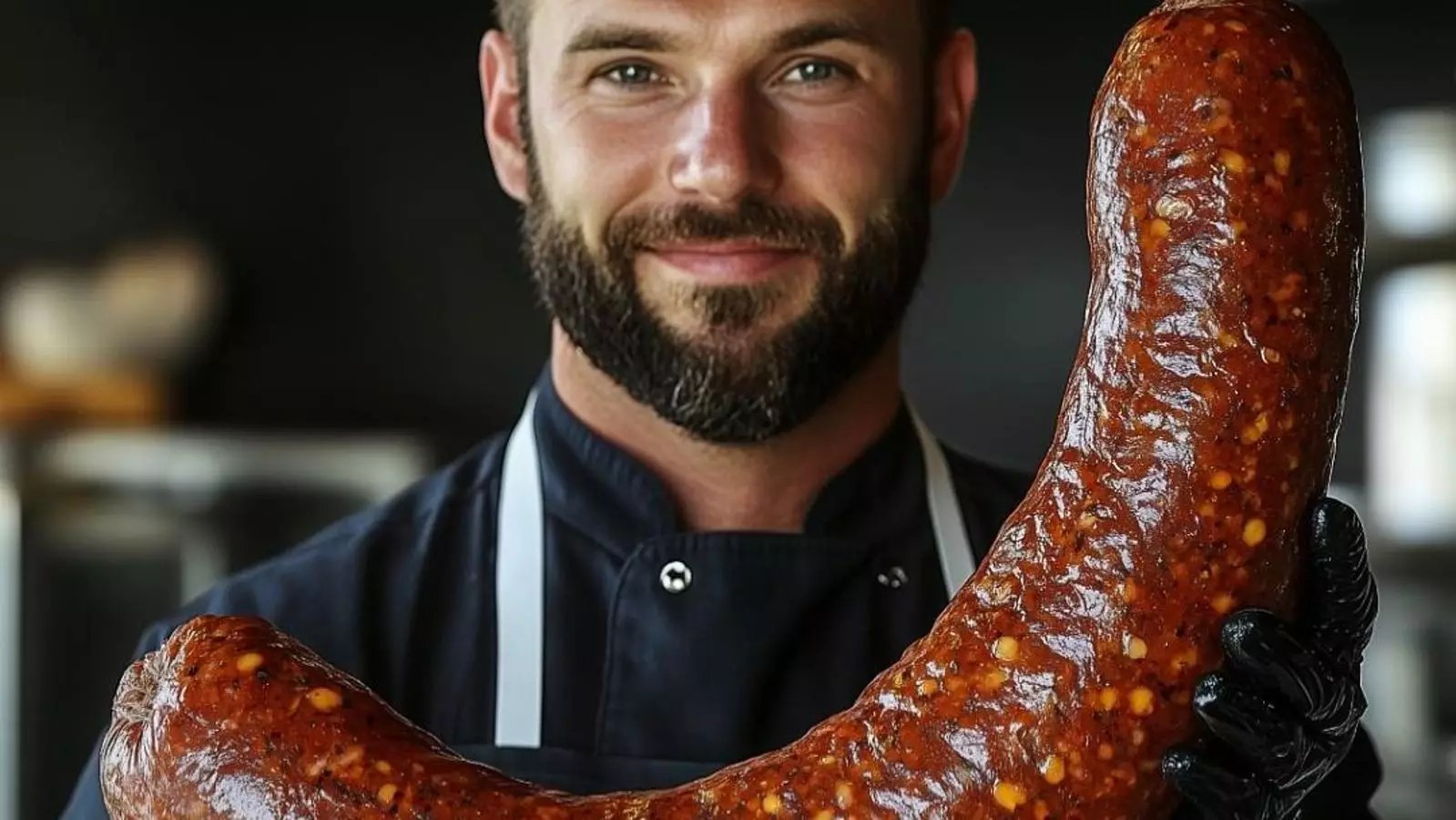In our digitally driven society, where images often tell more than the actual experience, the introduction of Ethos_atx has sparked a new wave of conversation surrounding the authenticity of food culture. This fictitious restaurant, which exists solely in the universe of social media, is ingeniously crafting an illusion of a dining experience devoid of any physical reality. From whimsical dinosaur-shaped pastries to creatively designed burger bouquets, Ethos_atx showcases a feast for the eyes that has captured the attention of over 74,000 followers on Instagram. However, what happens when this digital creation promotes not just culinary creativity but also raises ethical questions about consumer perception and deception?
Ethos_atx has struck a chord in the foodie community, offering an abundance of visually stunning culinary art that is both engaging and deceptive. Behind the glossy images and charming personalities lies a critical question: can an entirely AI-generated food brand genuinely engage an audience? The answer seems to be a resounding “yes.” Even though many followers might know that they are following a fake entity, the allure of imaginative food content is enough to keep their interest piqued. The restaurant’s “general manager,” whimsically dubbed Giuseppe Fusilli, claims to be available around the clock, adding a human touch to an otherwise virtual experience that people may find strangely comforting.
This phenomenon illustrates the compelling power of aesthetics in culinary marketing, highlighting how enticing visual presentations can captivate audiences even without substantive backing. Images of dishes crafted by AI can be deceptively appealing, blurring the lines between reality and fabrication. In many respects, Ethos_atx represents a shift in how food is marketed—a transition from genuine culinary offerings to a curated digital experience that thrives solely on aesthetics and engagement.
A Double-Edged Sword: Consumer Deception and AI Ethics
While Ethos_atx may appear to be an innocent social media experiment, it prompts a broader discussion about the ethics of AI-generated content in the food industry, and consumer trust. With technology advancing at an unprecedented rate, the food industry has seen a rise in AI-created imagery showcasing dishes that might not exist in reality. This trend can be alarming, as it raises concerns about the ability of such content to deceive consumers.
The impact of this reality is not lost on the culinary world. The risk of deception becomes particularly pertinent in a society where aesthetic quality often supersedes actual experience. The proliferation of ghost kitchens—restaurants that exist solely for delivery and rely on expertly curated photographs to promote their menus—exemplifies the sometimes blurry ethical landscape that accompanies the rise of AI in food marketing.
Ethos_atx brings to the forefront the inevitable intersection of technology and our culinary landscape, showcasing how vulnerable consumers can be in a world saturated by stylized content. If followers become enamored with fabricated dishes they can never actually taste, what does this say about authenticity and trust within the food industry?
Ethos_atx is not the first to tap into the potential of staging an online narrative through food. Anecdotes of faux restaurants gaining traction simply through cleverly crafted digital content are becoming increasingly common—remember the man who turned his shed into TripAdvisor’s top-rated restaurant? Such stories underline a trend more significant than any individual case; they illustrate how easily consumers can be misled in a glossy, curated digital space.
As restaurants and food brands increasingly embrace AI for marketing strategies, the implications extend beyond mere aesthetics. As Ethos_atx continues to engage and entertain, it sends a clear message about the evolving relationship between technology, creativity, and consumer trust. The challenge for real-world restaurants lies in finding a balance between harnessing digital strategies and maintaining authenticity in their culinary offerings.
Ethos_atx serves as a mirror reflecting the intriguing yet complex landscape of food marketing in the age of AI. Whether a playful deception or a commentary on the vulnerabilities of a digitally engaged culture, Ethos_atx represents the future of food in a world where appearances reign supreme. As audiences navigate this landscape, they must remain vigilant, discerning not only what’s real but also the meaning behind the images that tantalize and tempt their taste buds.


Leave a Reply